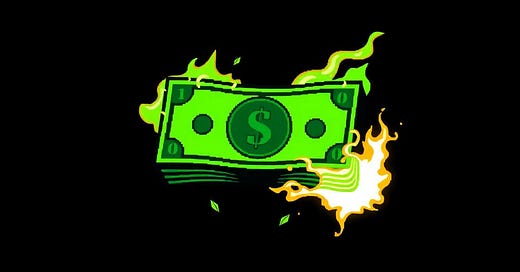A World Without Money: Could Society Survive?
I grew up knowing money as scarcity. Every decision, every opportunity—everything—was measured against what we could afford. When you live in poverty, money doesn’t just buy things; it dictates who gets to dream and who doesn’t.
So, what if money didn’t exist?
At first, it sounds like a utopian fantasy—or a dystopian nightmare. Some argue that without money, society would collapse into chaos. Others believe we’d finally be free to build a world based on trust, contribution, and abundance. But let’s go deeper: What does a world without money actually look like?
Would Life Be Fairer or Just More Primitive?
In the past, many societies thrived without money. They operated on barter, communal living, or gift economies. Even Karl Marx envisioned a future where wealth wasn’t measured in currency but in human well-being. But modern economies are complex. Can we really imagine cities, industries, and global trade functioning without money?
Would Greed Disappear or Just Change Form?
Some say money fuels greed. But is it really money—or the power that comes with controlling resources? If money vanished tomorrow, would power simply shift to those who control food, water, and land? Would influence be based on knowledge, skills, or brute force?
The Paradox of Free Distribution
A communist vision argues that eliminating money would free humanity from wage slavery and create abundance for all. The paper “A World Without Money” suggests that capitalism artificially maintains scarcity, keeping people dependent. In a system where goods and services are freely available, people would take only what they need, rather than hoarding wealth.
But here’s the problem: human nature. Would people really take only what they need, or would chaos erupt? If there’s no price tag, what stops someone from hoarding food or resources? Who decides how labor is distributed?
What Would Work Look Like?
Without wages, would people still be motivated to work? Would doctors still perform surgery? Would engineers still build? The argument in favor of a money-free society is that work would no longer be about survival, but about contribution and fulfillment.
But I come from a place where people worked themselves to the bone just to eat. What happens when that urgency disappears? Would innovation slow down—or would true passion finally flourish?
Is This a Future We Want?
A world without money forces us to rethink value itself. Instead of price tags, what if worth was measured in impact? In knowledge? In contribution?
Some days, I imagine this world and think it could be paradise. Other days, I think we’d just recreate the same inequalities—just without the paper currency to blame.
So, what do you think? Could humanity function without money—or would we end up inventing it all over again?
Drop your thoughts in the comments. Let’s debate.





